Health screenings you need in your 20s and 30s
Learn about the must-have tests for people in this age group.
Updated on April 9, 2025

You are never too young to start preparing for a healthy future. While it's important for people of all ages to take an interest in their health care, establishing a good relationship with a primary care physician as a young adult can have many positive effects as you grow older.
“Preventive medicine is something I think is really important,” explains Nadia Javaid, MD, a family practitioner with Saint Agnes Care Avecinia in Clovis, California. “The more we can screen for and diagnose health problems before they progress, the better we can treat people and the more we can educate people.”
It's vital to understand what health issues you should be regularly screened for and why. Here are screenings to expect in your 20s and 30s—and how they can set you up for good health in the long-term.
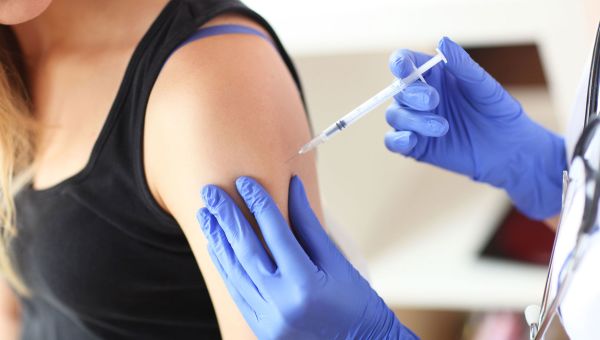
Wellness Visits
No matter your age, taking charge of your health means a regular wellness visit. It is here that your healthcare provider (HCP) will assess your overall health—including weight and body mass index (BMI)—and help you understand any health risks you may face in the coming months and years.
“This visit should include obtaining your vitals such as your heart rate and blood pressure,” says Dr. Javaid. “It is also important for your doctor to ask you how you are eating and sleeping, if you’re consuming alcohol, and how you are feeling. Your mental health should definitely be part of the conversation.”
During this visit, you may also receive any needed immunizations. Guidelines recommend that everyone get a flu shot every year. If you received the tetanus-diphtheria and acellular pertussis (Tdap) immunization before age 19, you should get a tetanus-diphtheria (Td) booster every 10 years. (If you didn’t, ask your HCP about a new series of vaccines.) Your HCP will advise if you need additional immunizations, such as a COVID shot or the measles, mumps, and rubella (MMR) vaccine, based on your job, lifestyle, vacation plans, health status, and age.
Your HCP may also check your skin for signs of cancer during these visits, especially if you’re at higher risk, such as if you've had skin cancer already, if it runs in the family, or if you're exposed to a lot of sun. Both the American Cancer Society (ACS) and the American Academy of Dermatology suggest regular self-exams of the skin so you can identify changes over time.
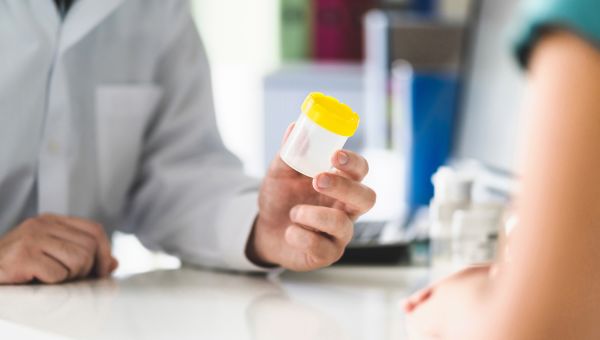
Screenings for sexually transmitted infections
If you are sexually active, it is recommended that you get screenings and immunizations for certain infectious diseases.
“Often people, especially men, don’t have symptoms with many of these sexually transmitted diseases,” explains Javaid. "That is how it can be passed on from partner to partner. There are actually studies that show chlamydia is highest among women who are 20 to 24 years old, and it can ultimately cause infertility if not treated.”
Your screenings may depend on lifestyle and risk factors assessed by your HCP, though Javaid suggests being tested for common infections, for peace of mind. Official recommendations include the following:
- The U.S. Preventive Services Task Force (USPSTF) and the Centers for Disease Control and Prevention (CDC) suggest sexually active women ages 24 and under be screened for chlamydia and gonorrhea. Women ages 25 and older with risk factors, such as having a new partner, should be screened, as well.
- The CDC notes that sexually active gay and bisexual men should be screened for chlamydia, gonorrhea, and syphilis annually.
- The USPSTF recommends everyone between ages 15 and 65 be tested for HIV. The CDC notes that gay and bisexual men with multiple or anonymous partners should get tested every three to six months, and anyone who shares needles or doesn't practice safe sex should get a yearly screening.
- All pregnant people should be screened for syphilis, hepatitis B, and HIV, and all pregnant people ages 24 or younger should be screened for chlamydia and gonorrhea. When 25 or older, pregnant people should be screened for chlamydia and gonorrhea only if they have an increased risk of infection (with repeat testing as needed).
The ACS also recommends testing for human papillomavirus (HPV) every five years for women between the ages of 25 and 65. This is a newer screening tool for cervical cancer and can be performed at the same time as a Pap smear. Getting a Pap smear every 3 years is also an accepted screening tool for detecting cervical cancer in this age group.
“If a Pap smear is abnormal, then patients may need more regular testing and might need a Pap smear every year,” advises Javaid. “The Pap smear screens for cervical cancer, which can have symptoms of irregular vaginal bleeding, bleeding after intercourse, and pelvic pain. If you experience any of these symptoms, notify your doctor as you may need to be screened early.”
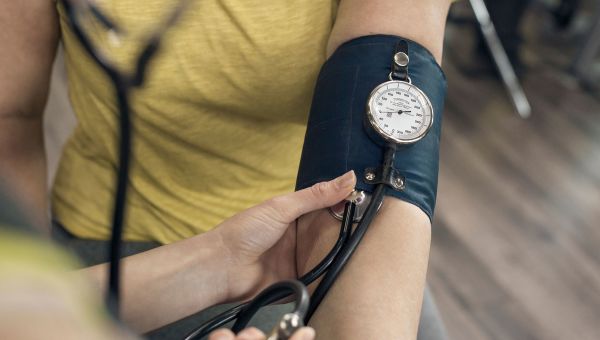
Blood pressure screenings
More than 110 million U.S. adults are considered to have hypertension, also known as high blood pressure. Even though the condition is relatively uncommon in younger adults, Javaid says there has been a bit of a rise due to the obesity epidemic.
Hypertension typically doesn’t have any symptoms and is often called “the silent killer” as a result. “High blood pressure can lead to heart failure and kidney failure,” says Javaid. “It can also increase your risk of stroke and heart attack. That’s why it’s really important to treat this disease.”
USPSTF guidelines state that healthy people should start blood pressure screenings at age 18. If you have health conditions such as diabetes or heart disease, or if you have higher-than-normal blood pressure (more than 120 mm Hg systolic or more than 80 mm Hg diastolic), you will likely need to get it checked more often, which could range from every 3 to 12 months.
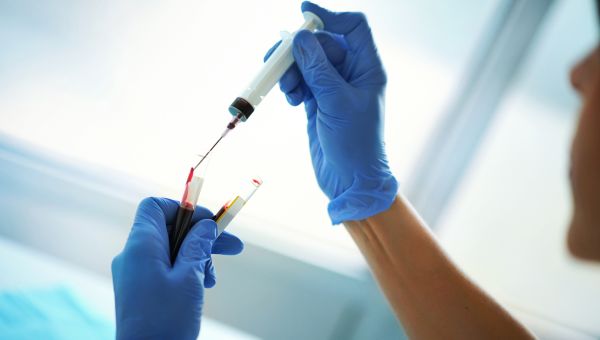
Cholesterol screenings
In addition to monitoring your blood pressure, another way to help prevent heart disease is through regular cholesterol screenings. “As we age, the risk of high cholesterol increases,” says Javaid. “High blood pressure, diabetes, smoking, obesity, and a sedentary lifestyle all influence your risk of having high cholesterol.”
Together, the American College of Cardiology and American Heart Association (ACC/AHA) recommend that cholesterol blood tests begin at age 21, with follow-up tests every four to six years. People at higher risk—such as those with obesity—may start earlier and be screened more frequently. Ideally, your total cholesterol should be below 200 mg/dL.

Diabetes screenings
The American Diabetes Association (ADA) estimates that more than 11 percent of Americans have diabetes. “Uncontrolled diabetes can cause kidney failure and blindness,” says Javaid. “It definitely increases your risk of heart attack and stroke. It can also result in increased yeast infections in females and, for males, it can contribute to erectile dysfunction.”
The ACC and ADA recommend that screening for prediabetes and type 2 diabetes begin at age 35. (Prediabetes is a condition marked by elevated blood sugar levels that increases one’s risk of developing type 2 diabetes.) Screening may be started earlier for those with risk factors such as obesity, sedentary lifestyle, family history, or being part of a high-risk ethnic group. These groups include people of African, Asian, and Mexican ancestry, as well as Native Hawaiians and Pacific Islanders. You may have the option of one of three blood tests. These tests let your HCP know how your body processes blood sugar, also known as blood glucose.
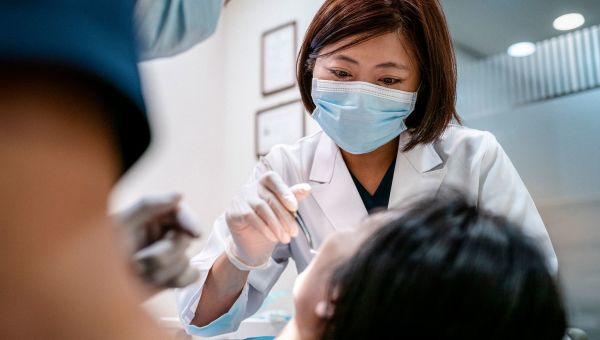
Dental exams
The National Institute of Dental and Craniofacial Research has found that more than 90 percent of adults over the age of 20 have tooth decay. This is why it’s vital to get regular dental exams and cleanings beginning at a young age. In addition to brushing and flossing, cleanings can help prevent gum disease and plaque buildup and help maintain the integrity of tooth enamel to prevent decay.
It’s recommended that people get an exam and cleaning once or twice a year. Depending on your exam results, your dentist may advise more frequent visits.
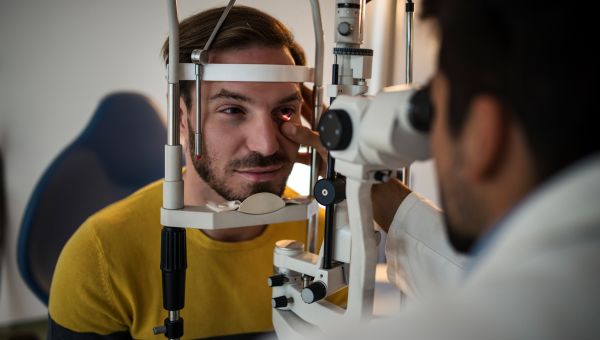
Eye exams
It’s less likely you’ll experience vision problems in your 20s and 30s than when you are older. That said, you should still have your eyes examined regularly as a preventive measure. The American Optometric Association recommends that people get eye exams every two years between the ages of 19 and 40.
These recommendations change if you already have glasses or if you have health complications such as high blood pressure or diabetes. In these cases, you should be prepared for additional visits—likely at least once per year.
Javaid advises that certain populations visit an ophthalmologist every year because some medications—especially those that treat rheumatoid arthritis and some other autoimmune diseases—can affect the eyes.

Additional testing
In addition to the previously discussed exams, women in their 20s and 30s should also be aware of the following screenings:
- As noted previously, it is recommended that women ages 25 to 65 have a Pap smear every three years or an HPV test every 5 years. Pelvic exams are more controversial. Certain groups recommend against them, while others recommend them for people with certain conditions or medical histories. It's best to discuss these with your HCP.
- Mammograms are rarely recommended in this age group unless you have risk factors such as BRCA1 or BRCA2 gene mutations. In these cases, the ACS suggests beginning yearly mammograms at age 30, while the National Comprehensive Cancer Network suggests people start between the ages of 25 and 40. Speak with your HCP about what screening schedule makes the most sense for you. Otherwise, many expert guidelines suggest you be given the option to begin mammograms between ages 40 and 50.
- Rather than recommending formal breast self-exams, the ACS and the American College of Obstetricians and Gynecologists (ACOG) suggest women familiarize themselves with the feel of their own breast tissue, so they’re better able to detect changes. ACOG says clinical breast exams can be offered every one to three years between ages 25 and 39.
The ACS recommends that prostate screening doesn’t typically need to start until after one’s 30s, though men between the ages of 20 and 39 should talk with their HCP about screening if they have risk factors like close family members diagnosed with prostate cancer.
Many healthcare providers believe a yearly checkup should include examination of the testicles, while others advise men to examine their testicles monthly after puberty, according to the ACS. There’s no evidence this reduces testicular cancer deaths, however. If you notice any changes between routine visits, reach out to an HCP.

MedlinePlus. Health screenings for men ages 18 to 39. August 1, 2023.
MedlinePlus. Health screenings for women ages 18 to 39. August 1, 2023.
Centers for Disease Control and Prevention. Whooping Cough (Pertussis): Pertussis Vaccination Recommendations. October 31, 2024.
Centers for Disease Control and Prevention. What Vaccines are Recommended for You. June 12, 2024.
American Cancer Society. How to Do a Skin Self-Exam. June 26, 2024.
American Academy of Dermatology Association. Detect Skin Cancer: How to Perform a Skin Self-Exam. May 15, 2023.
Centers for Disease Control and Prevention. Sexually Transmitted Infections Treatment Guidelines, 2021, Screening Recommendations. July 22, 2021.
U.S. Preventive Services Task Force. Chlamydia and Gonorrhea: Screening. September 14, 2021.
U.S. Preventive Services Task Force, Owens DK, Davidson KW, et al. Screening for HIV Infection: US Preventive Services Task Force Recommendation Statement. JAMA. 2019;321(23):2326-2336.
Centers for Disease Control and Prevention. Sexually Transmitted Infections Treatment Guidelines, 2021: Screening Recommendations and Considerations Referenced in Treatment Guidelines and Original Sources. March 22, 2024.
National Cancer Institute. ACS’s Updated Cervical Cancer Screening Guidelines Explained. September 18, 2020.
Centers for Disease Control and Prevention. High Blood Pressure Facts. January 28, 2025.
U.S. Preventive Services Task Force. Hypertension in Adults: Screening. April 27, 2021.
American Heart Association. Heart-Health Screenings. January 16, 2024.
AHA/ACC/AACVPR/AAPA/ABC/ACPM/ADA/AGS/APhA/ASPC/NLA/PCNA guideline on the management of blood cholesterol: a report of the American College of Cardiology/American Heart Association Task Force on Clinical Practice Guidelines. Circulation. 2019;139:e1082–e1143.American Heart Association. More than 100 million Americans have high blood pressure, AHA says. January 31, 2018.
American Diabetes Association. Statistics About Diabetes. Accessed April 9, 2025.
American College of Cardiology. Screening for Prediabetes and Type 2 Diabetes. August 25, 2021.
Centers for Disease Control and Prevention. Diabetes Risk Factors. May 15, 2024.
National Institute of Dental and Craniofacial Research. Dental Caries (Tooth Decay) in Adults (Age 20 to 64). November 2022.
American Optometric Association. Adult Vision: 19 to 40 Years of Age. Accessed April 9, 2025.
American Academy of Family Physicians. AAFP Recommends Against Pelvic Exams in Asymptomatic Women. 2017.
The American College of Obstetricians and Gynecologists. The Utility of and Indications for Routine Pelvic Examination. October 2018.
American Cancer Society. American Cancer Society Recommendations for the Early Detection of Breast Cancer. December 19, 2023.
Centers for Disease Control and Prevention. Bring Your Brave Campaign: Strategies for Managing Risk. September 24, 2024.
The American College of Obstetricians and Gynecologists. Breast Cancer Risk Assessment and Screening in Average-Risk Women. July 2017.
American Cancer Society. Can Testicular Cancer Be Found Early? Reviewed May 17, 2018.
More On


video
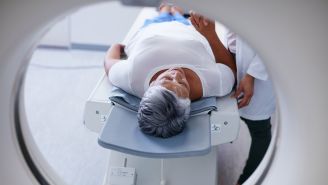
article


video


video


video
